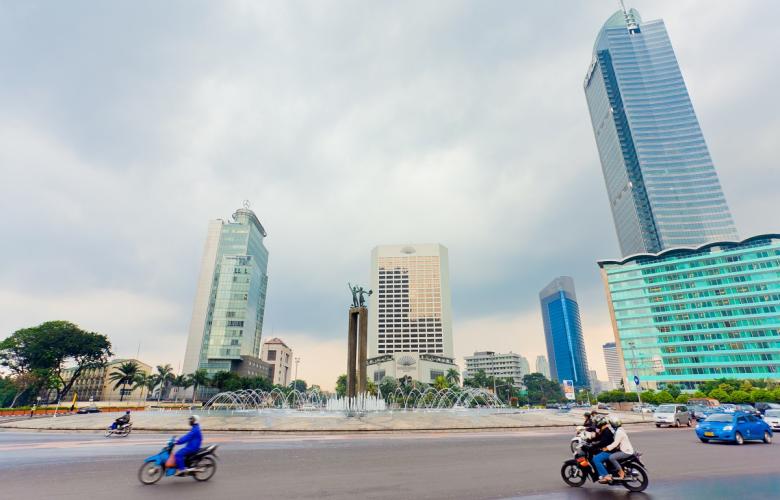2020 budget focus on infrastructure to buoy real estate development
Contact
2020 budget focus on infrastructure to buoy real estate development
CBRE Indonesia Market Flash August 2019 explains what the proposed a record-high Rp. 2,528.8 trillion (US$177.56 billion) budget to parliament for 2020 means for real estate.
On Friday, August 16, Indonesian President Joko Widodo (Jokowi) proposed a record-high Rp. 2,528.8 trillion (US$177.56 billion) budget to parliament for 2020.
The budget, which will fund government programmes in the first year of Jokowi’s second five-year term, which begins in October, also set a 2020 GDP growth target of 5.3%, although most independent growth projections stand at between 5.0-5.2%.
The focus of the budget is on five main areas: infrastructure, human resources, social protection, regional autonomy and global uncertainty. Parliament usually takes until October to approve budget proposals.
Immediately before the budget announcement, Jokowi formally requested permission from parliament to relocate Indonesia’s capital city from Jakarta to Kalimantan on Borneo, marking an important milestone in this much-discussed initiative.
What does it mean for real estate?
While the budget was thin on real estate-specific measures, the fact that infrastructure remains a key policy objective in Jokowi's next five-year term will come as a welcome boost for property investors and developers, many of whom have capitalised on opportunities created by the massive investment in airports, roads, ports and railways over the past five years. The Jakarta Construction, Property, and Real Estate Index rose by 1.9% on Friday following the budget announcement, gaining for a third consecutive day.
Many of Indonesia's leading developers have already taken advantage of the recently completed Mass Rail Transit (MRT) and Light Rail Transit (LRT) systems in Jakarta by purchasing land and launching new projects near stations or strengthening the connectivity of existing schemes to the MRT and LRT networks.
Major new infrastructure projects due to be completed 2019-2024 include the final sector of the Trans-Java Toll-road; new sections of the Trans-Papua Highway; the Jakarta-Bandung High Speed Railway; a new medium speed railway linking Jakarta and Surabaya; Patimban Port in West Java; a new international airport in Yogyakarta; and additional MRT and LRT lines in Jakarta.
There are also reports that construction work on a 7 km bridge linking Batam (Indonesia’s only Free Trade Zone) and Bintan islands will commence in 2020. The bridge aims to capitalise on the addition of Singapore's Changi Airport's Terminal 5, which will have transport connections to nearby Bintan.
Real estate investors and developers are advised to pay close attention to announcements and progress on these projects, which will play a critical role in improving connectivity and unlocking new areas for development.
Similarly, the formal proposal to relocate the new capital, which will require the construction of new infrastructure such as roads, railways, offices, housing and supporting infrastructure for the more than 1 million government employees expected to move to the new location over the next decade, will prompt investors and developers to accelerate planning to capitalise on these opportunities.1
Based on comments from senior government officials and Jokowi himself, the new capital will either be in Bukit Soeharto in East Kalimantan or the Triangle Area near Palangkaraya in Central Kalimantan, both on Borneo. A formal announcement is expected later this year.
When the relocation does proceed, CBRE Research expects that Jakarta will remain the business and financial hub of Indonesia, with the new capital playing host to political and administrative functions.
Any downside for the Jakarta property market will therefore be limited, as while some companies may set up a representative office in the new capital, most occupiers will retain their existing presence in Jakarta, which will continue to play host to the stock exchange, essential financial and business organisations and company headquarters.
The relocation may also create new investment and development opportunities in Jakarta, with senior government officials recently floating the idea of leasing out or even selling government-owned buildings to developers, who would then be obliged to build facilities and infrastructure in the new capital.
While many of these buildings are in prime locations and will be very attractive to developers for their redevelopment value, a large portion will be older properties that will be challenging to let in what is an already oversupplied market.
Source: CBRE
Similar to this:
Australia and Indonesia sign historic partnership agreement
Jakarta only going to 'increase in attractiveness' for investors, says JLL





